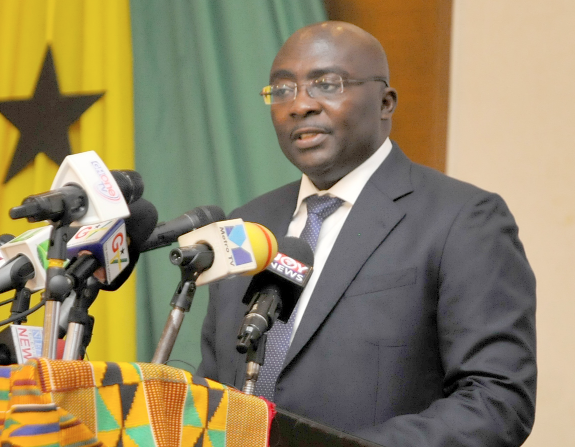
Veep challenges state enterprises to improve commercial viability
Vice-president Mahamudu Bawumia has called on industry players to come up with strategies to ensure financial discipline and improve the commercial viability of state-owned enterprises (SOEs) in the country.
That, he explained, was essential as there was increasing pressure for SOEs to justify continued government support and investments, especially for loss-making and inefficiently run entities.
“Share with government not your many challenges – which we all know – but your strategies for ensuring financial discipline, exploring access to new sources of capital, transparency and accountability, and improving commercial viability,” the Vice-President stressed.
Dr Bawumia said this when he opened the 2017 SOE Policy and Governance Forum in Accra hosted by the State Enterprises Commission (SEC) and the Ministry of Finance in Accra Tuesday.
Relevance of SOEs
The Vice-President stressed that SOEs would remain a major part of the government’s economic transformation strategy.
“As the quasi-commercial arm of the state, the role of SOEs in helping to achieve the objective of job-creation and Public Private Partnerships (PPPs) is pivotal as they extend to all critical sectors of the economy, including energy and power, petroleum, trade, agriculture, manufacturing, housing, railways and aviation.
“There is, therefore, an expectation that SOEs will be significant partners in Ghana’s economic development for the foreseeable future,” Dr Bawumia stated.
He said a recent report by the Ministry of Finance covering 18 SOEs indicated that those SOEs made a net loss of GH¢791 million, in addition to having received loans and financial support totalling more than GH¢13 million.
“This is no longer sustainable and it is your responsibility to come to the table, in the course of this forum, with solutions to it,” he added.
Achieving commercial success
He said the growth of the private sector made it increasingly difficult to justify the participation of the government in certain sectors of the economy.
“Given that most SOEs were initially created to fill gaps in the economy at a time when there were no private sector players with sufficient leverage to pursue such investments, it is increasingly making less sense for government to keep its interest in SOEs in sectors with strong private participation and which continue to make such losses,” he opined.
The Vice-President said the government, for its part, would be exploring the possibility of listing as many SOEs as possible, where feasible, on the Ghana Stock Exchange as part of the overall drive to reform the sector and help them achieve commercial success.
Ownership structure
Currently, he said, multiple institutions including the Ministry of Finance, the State Enterprises Commission (SEC) and sector ministries performed various oversight functions in the SOE sector.
“This fragmentation in the government’s ownership structure coupled with the absence of a clearly defined ownership framework has limited government’s ability to effectively oversee SOEs,” he observed.
As part of the broad reforms, Dr Bawumia said the State Enterprises Commission as well as selected SOEs were benefitting from a World Bank Technical Assistant Programme focused on consolidating the state’s ownership role in SOEs into a single entity, improving performance and ensuring effective and efficient service delivery by SOEs.
Reforms
The Minister of Finance, Mr Ken Ofori-Atta, said the forum formed part of the government’s efforts at reforming the SOEs.
He recounted that SOEs dominated the country’s post-independence economy during the days of attempting to attain self-sufficiency.
Following some structural public reforms, the number of SOEs was slashed from over 300 to a little over 40.
Mr Ofori-Atta observed that by the end of 2016, the number of people employed by SOEs stood at 31,089 stressing that the sector remained relevant to the needs of the country and therefore required that all steps were taken to revamp the sector.
